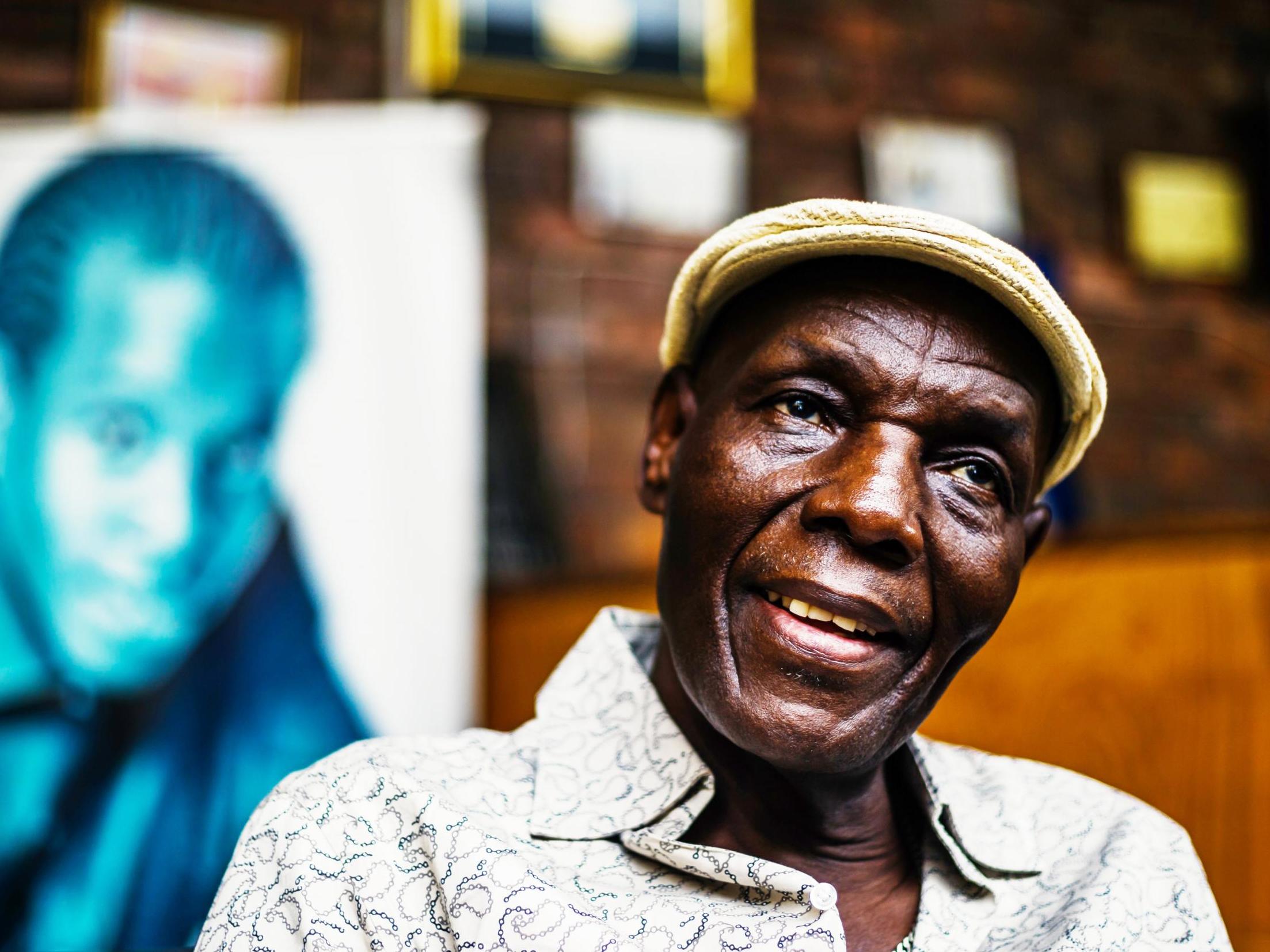Oliver Mtukudzi: Afro-jazz star whose music brought Zimbabweans together
Oliver ‘Tuku’ Mtukudzi’s popularity stretched back to the 1970s and cut across political and generational divides

News of the death of the Zimbabwean musician Oliver Mtukudzi, who was 66, emerged as bloody clashes were taking place between anti-government demonstrators and security forces on the streets of Harare.
The bitter irony is that Mtukudzi, who was known to his adoring public as “Tuku”, was regarded as a unifying, healing figure. Tens of thousands attended his funeral procession at the national stadium in Harare on Sunday.
His popularity – which stretched from the days of Rhodesia’s white minority government in the 1970s to an independent Zimbabwe under Robert Mugabe’s majority-rule regime and beyond – cut across the political and generational divides.
The husky vocals and fluid guitar playing that defined his music were described variously as simply Tuku music, as Afro-jazz or as a fusion of the Zimbabwean dance-music style “jit” and South African township pop.
What was beyond doubt was its appeal, which also saw him make international tours, taking in the UK and North America.
Mtukudzi eschewed overtly political lyrics, preferring to focus on themes about everyday problems, from alcohol abuse and women’s rights to Aids, which claimed the life of his brother Robert and several band members. When, in 2001, his track “Wasakara” was banned. It was widely interpreted as a coded call to Robert Mugabe to relinquish his repressive grip.
Yet he played at events staged by Zanu-PF, the party of Mugabe and his successor as president, Emmerson Mnangagwa, as well as at the wedding and funeral of opposition leader Morgan Tsvangirai. Preaching to the converted was not his style. “Where I come from you don’t get to sing a song if you have nothing to say,” he told CNN in 2013. “Every song has something to do with the man in the street, who must be able to use it in his life.”
Born in the Highfield ghetto of Harare, Mtukudzi was inspired by his music-loving father. In the mid-1970s he began playing and recording with bands such as the Wagon Wheels and Black Spirits, collaborating in the former with Thomas Mapfumo, who would become known for anti-Mugabe “protest” songs before going into exile for 14 years. Moving into solo work “Tuku” went on to release more than 60 albums and in 2003 featured on the cover of Time magazine billed as “The People’s Voice”.
In 2010 his 21-year-old son Samson died in a car accident. Grief-stricken, Mtukudzi began playing more shows than ever before, explaining: “It’s the only therapy I’ve got.” The 2013 album Sarawoga (Left Alone) was dedicated to Sam. His final collection of songs, last February’s Hanya’Ga (Concern), dealt with issues such as child marriage and economic collapse. He also recorded with South African artists such as Hugh Masekela and Ladysmith Black Mambazo.
The night before his death Mtukudzi was due to collect an award at the Zimbabwe Broadcasting Corporation Coca-Cola Awards. Among the myriad honours conferred on him were the title of Unicef Goodwill Ambassador for Southern Africa and an honorary doctorate from the Great Zimbabwe University.
Zimbabwe’s president Mnangagwa declared him a national hero after his death. “Tuku” is survived by his wife, Daisy, and five children.
Oliver “Tuku” Mtukudzi, singer, songwriter and multi-instrumentalist, born 22 September 1952, died 23 January 2019
Subscribe to Independent Premium to bookmark this article
Want to bookmark your favourite articles and stories to read or reference later? Start your Independent Premium subscription today.

Join our commenting forum
Join thought-provoking conversations, follow other Independent readers and see their replies